
Bandy is a winter sport and ball sport played by two teams wearing ice skates on a large ice surface while using sticks to direct a ball into the opposing team's goal.

Association football, more commonly known as football or soccer, is a team sport played between two teams of 11 players each, who primarily use their feet to propel a ball around a rectangular field called a pitch. The objective of the game is to score more goals than the opposing team by moving the ball beyond the goal line into a rectangular-framed goal defended by the opposing team. Traditionally, the game has been played over two 45-minute halves, for a total match time of 90 minutes. With an estimated 250 million players active in over 200 countries and territories, it is the world's most popular sport.

Approximately 5 million of the 17 million people in the Netherlands are registered to one of the 35,000 sports clubs in the country. About two thirds of the population older than 15 years participates in sports weekly.

Football at the Summer Olympics, also referred to as the Olympic Football Tournament, has been included in every Summer Olympic Games as a men's competition sport, except 1896 and 1932. Women's football was added to the official program at the Atlanta 1996 Games.
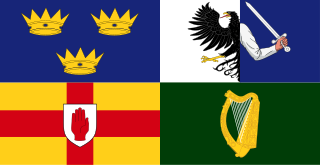
Sport in Ireland plays an important role in Irish society. The many sports played and followed in Ireland include Gaelic games, association football, horse racing, show jumping, greyhound racing, basketball, fishing, handball, motorsport, boxing, tennis, hockey, golf, rowing, cricket, and rugby union.

Sport in the United Kingdom plays an important role in British culture and the United Kingdom has played a significant role in the organisation and spread of sporting culture globally. In the infancy of many organised sports, the Home Nations were heavily involved in setting out the formal rules of many sports and formed among the earliest separate governing bodies, national teams and domestic league competitions. After 1922, some sports formed separate bodies for Northern Ireland, though many continued to be organised on an all-Ireland basis. For this reason, in many though not all sports, most domestic and international sport is carried on a Home Nations basis, and England, Wales, Scotland and Ireland are recognised as national entities.
FIFA is the international governing body of association football, futsal and beach soccer. It is one of the world's oldest and largest NGOs, being founded on 21 May 1904. It has since expanded to include 211 member associations.
Association football is the most popular sport in Kuwait, followed by basketball and cricket. Additional sports on the rise in Kuwait include powerboating, handball, field hockey, rugby union, and shooting.

Soccer, also known as football, is the most played outdoor club sport in Australia, and ranked in the top ten for television audience as of 2015. The national governing body of the sport is Football Australia (FA), which until 2019, organised the A-League Men, A-League Women, and still organises the Australia Cup, as well as the men's and women's national teams. The FA comprises nine state and territory member federations, which oversee the sport within their respective region.

Sport in Wales plays a prominent role in Welsh culture. Like the other countries of the United Kingdom, Wales enjoys independent representation in major world sporting events such as the FIFA World Cup and in the Rugby World Cup, but competes as part of Great Britain in some other competitions, including the Olympics.
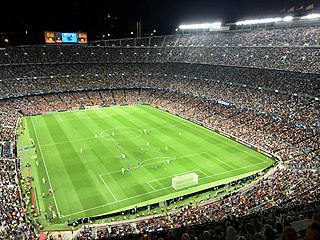
Sport in Europe tends to be highly organized with many sports having professional leagues. The origins of many of the world's most popular sports today lie in the codification of many traditional games, especially in the United Kingdom. However, a paradoxical feature of European sport is the extent to which local, regional and national variations continue to exist, and even in some instances to predominate.

The most popular sport in Russia is soccer. According to Yandex search analysis results rating of the most popular sports among Russians: "Football topped the list of the most popular sports in Russia" with 5 to 10 million requests. Ice hockey came in second with handball, basketball, futsal, boxing, auto racing, volleyball, athletics, tennis, and chess rounding out the top ten rankings. Other popular sports include bandy, biathlon, figure skating, weightlifting, gymnastics, wrestling, martial arts, rugby union, and skiing.

The Union of French Athletic Sports Societies was a former sports governing body in France. During the 1890s and early 1900s it organised numerous sports including athletics, cycling, field hockey, fencing, croquet, and swimming. However it is perhaps best known for being the principal governing body of both football and rugby union until it was effectively replaced by the French Football Federation and the French Rugby Federation. The USFSA rejected any form of professionalism and were strong advocates of amateur sport.
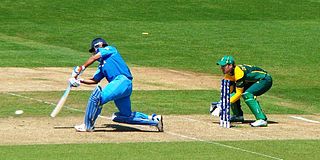
India has a history of sports dating back to the Vedic period. Cricket is the most popular spectator sport; it generates the highest television viewership, with the Indian Premier League (IPL) being the most-followed league in the country. Football has also gained popularity, with the Indian Super League (ISL) being the highest level of domestic football, and the national team winning multiple gold medals at the Asian and South Asian Games. Additional football accomplishments include India having reached the semifinal of the 1960 Olympics, qualified for the 1950 FIFA World Cup, and won the SAFF Championship. Other sports include kabaddi, badminton, tennis, and athletics, with kho-kho becoming the fourth-most viewed sport. India has also had success in field hockey, winning the World Cup and multiple medals in the Olympic Games. Sports such as golf, rugby, boxing, kickboxing, mixed martial arts, motorsport, wrestling, and basketball are featured throughout the country.

Association football is the most popular sport in almost all African countries, and in 2010 South Africa became the first African nation to host the FIFA World Cup.
Sport in Azerbaijan has ancient roots, and even now, both traditional and modern sports are still practiced. Freestyle wrestling has been traditionally regarded as Azerbaijan's national sport, however today, the most popular sports in Azerbaijan are football and chess. Other popular sports are gymnastics, judo, futsal, weightlifting, and boxing. Azerbaijan's mountainous terrain provides great opportunities for the practice of sports like skiing and rock climbing. Water sports are practiced on the Caspian Sea and in inland waters. Competitively, Azerbaijan has been very successful at chess, weightlifting, and wrestling at the international level. Azerbaijan is also an active member of the international sports community, with full membership in the International Federation of Association Football (FIFA), Union of European Football Associations (UEFA), International Association of Athletics Federations (IAAF), European Athletics Association (EAA), International Olympic Committee (IOC), among many others. It has also hosted the first European Games and 2017 Islamic Solidarity Games.

Sport pertains to any form of physical activity or game, often competitive and organized, that aims to use, maintain, or improve physical ability and skills while providing enjoyment to participants and, in some cases, entertainment to spectators. Sports can, through casual or organized participation, improve participants' physical health. Hundreds of sports exist, from those between single contestants, through to those with hundreds of simultaneous participants, either in teams or competing as individuals. In certain sports such as racing, many contestants may compete, simultaneously or consecutively, with one winner; in others, the contest is between two sides, each attempting to exceed the other. Some sports allow a "tie" or "draw", in which there is no single winner; others provide tie-breaking methods to ensure one winner. A number of contests may be arranged in a tournament producing a champion. Many sports leagues make an annual champion by arranging games in a regular sports season, followed in some cases by playoffs.
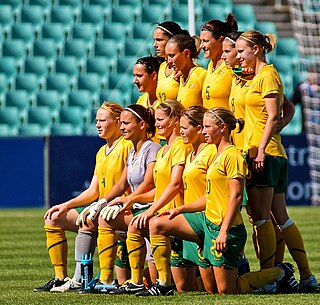
Women's soccer, also known as women's football, is a popular sport in Australia. The sport has a high level of participation in the country both recreational and professional. Football Australia is the national governing body of the sport in Australia, organising the A-League Women, the Australian women's national team, and the nine state governing bodies of the game, among other duties. Women's participation of modern soccer has been recorded since the early 1920s. It has since become one of Australia's most popular women's team sports.
Ghana's most popular sport is football, followed by boxing, Athletics, Badminton and basketball.
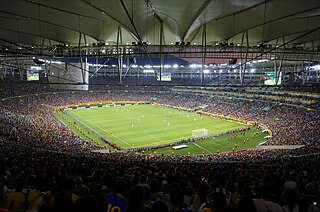
Football is considered one of the greatest sports in South America. Football was first introduced to the continent during the nineteenth century, as part of the worldwide diffusion of British culture initiated by the British diaspora and subsequent acceptance of the sport by the region's Anglophile elite. Football was widely regarded as a symbol of modernity and good health, and over time it replaced older fashionable sports, such as Bochas. By the middle of the twentieth century, it had become the primary mainstream sport across most of the continent.


















